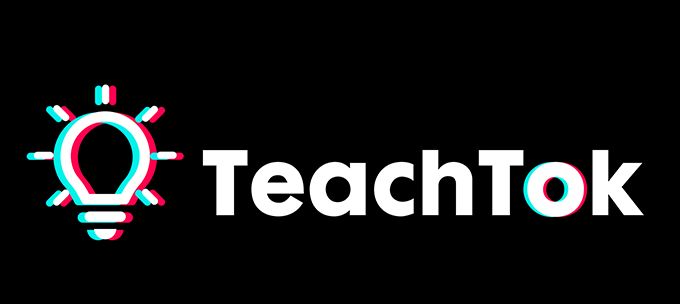
Before social media, students rarely knew their teachers beyond their professional position in the classroom. Perhaps we might bump into them in the neighbourhood, at a supermarket, or in a restaurant. But as students, we knew little about teachers “off duty”.
Today, much has changed. During COVID, many teachers joined the social media platform TikTok as a way of communicating with and connecting with students they could not see in person.
TikTok enables users to upload short videos (between three and 10 minutes long), which often feature music in the background as an audio meme, and other filters or text.
You might have seen teachers on TikTok dancing to the latest viral song with their students. Or dressing in costumes to illustrate how many different jobs they do in a given day.
While some of them share behind-the-scenes snippets of their day jobs, others use the most popular audio, dance, and meme trends to convey educational messages.
What is ‘TeachTok’?
In our new study, we investigated the popular genre of “TeachTok” – where teachers teach and talk about teaching on TikTok – to understand how and why teachers turn themselves into “micro-celebrities” on the platform.
Previous research has looked at how internet celebrities monetise their following, taking on advertising deals, becoming ambassadors for various messages, or launching their own businesses. But in our study, we investigated the motivations and impacts of popular teachers on TeachTok.
Taking a bilingual approach, we focused on two of the most used languages worldwide and examined the most popular TeachTok hashtags in English and Spanish: #TeachersOfTikTok and #ProfesoresDeTikTok. We identified 12 of the most prolific professional teachers in both language groups, who teach from kindergarten to university level, and conducted a close analysis of their content over a month-long period in 2022.
<centre?
@ermy_werm they just don’t pass the vibe check srry #teachertok ♬ original sound – GeeOfDee
How does TeachTok work?
TeachToks often saw teachers perform a range of “point of view” perspectives to demonstrate how they would react to different situations.
Some of the most popular included the inner monologue of teachers as they listen to student excuses for being late, or the sense of pride or gratitude they might feel when other students come to their defence.
Other teachers shared their entire preparation routines for the classroom.
Others perform TikTok dances after losing a bet to students, or after students have won a challenge. For example, “If 21/25 students pass the exam, I will create a profile on TikTok”.
In so doing, teachers are showing how they care about their students, building up relationships with their class, and helping their students understand more about their jobs.
Learning at home
But TeachTok is not just about dancing and memes.
During COVID lockdowns teachers used TikTok to create short videos, which were then no longer than three minutes, to keep connecting with students. Unlike other social media platforms where lessons can be hours-long, TikTok involves clips that are easy to digest (although YouTube has recently launched YouTube Shorts which are clips that only go for 60 seconds).
One popular trend on TeachTok is language learning. For instance, you can find videos that teach you how to start a conversation in Spanish or learn basic phrases. Elsewhere, teachers share quick maths tricks that are easy to learn in just one minute.
Teachers also share tips for parents to assist with learning in the home. These activities include learning about codes with numbers and colours on cardboard, or using recycled plates to learn words.
@dumbwaystodie 10/10 prank tho! Via: @Jennifer and Michael Harrison #dwtd #gamingvideos #gaming ♬ original sound – Blake Floyd
TeachTok to help teachers
For teachers, TeachTok can also facilitate a sense of belonging, which is important in a profession where stress and burnout are common.
Many new teachers share their struggles and challenges in the early years of teaching, while others reflect on the academic year.
@tasiactaylor a lot has changed.. #covid #lockdown #raisingteens #adoptingteens ♬ Mother – Meghan Trainor
Other TeachToks address stereotypes people may have about teachers, such as how Spanish society perceives the profession as being “relatively easy with lots of time off”.
Is TeachTok here to stay?
As TeachTok becomes a new norm, there is more pressure for teachers to engage in unpaid work in their personal time. Some teachers lament the excessive criticism and surveillance they receive on TikTok, while others report students and parents have come to expect continuous access to them 24/7.
Teachers on the platform also need to be careful that they protect their students’ privacy if they are talking about lessons or class time in an online public forum.
But perhaps the most significant contribution of TeachTok is its ability to make education more accessible, engaging, and entertaining. It has become an excellent resource for anyone interested in learning a new language, mastering a new skill, or having fun while learning.
Author Bios: Crystal Abidin is a Professor & ARC DECRA Fellow, Internet Studies at Curtin University and Arantxa Vizcaíno-Verdú is a Phd Student in Communication at the Universidad de Huelva
